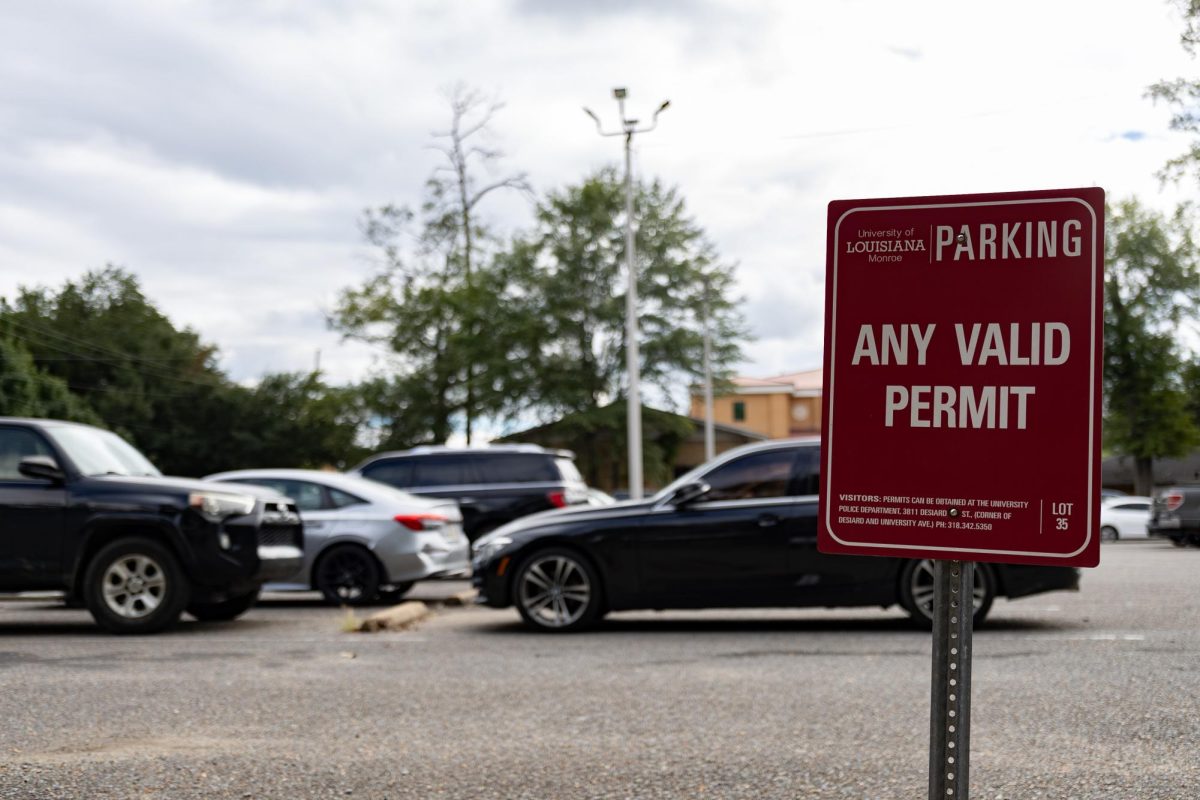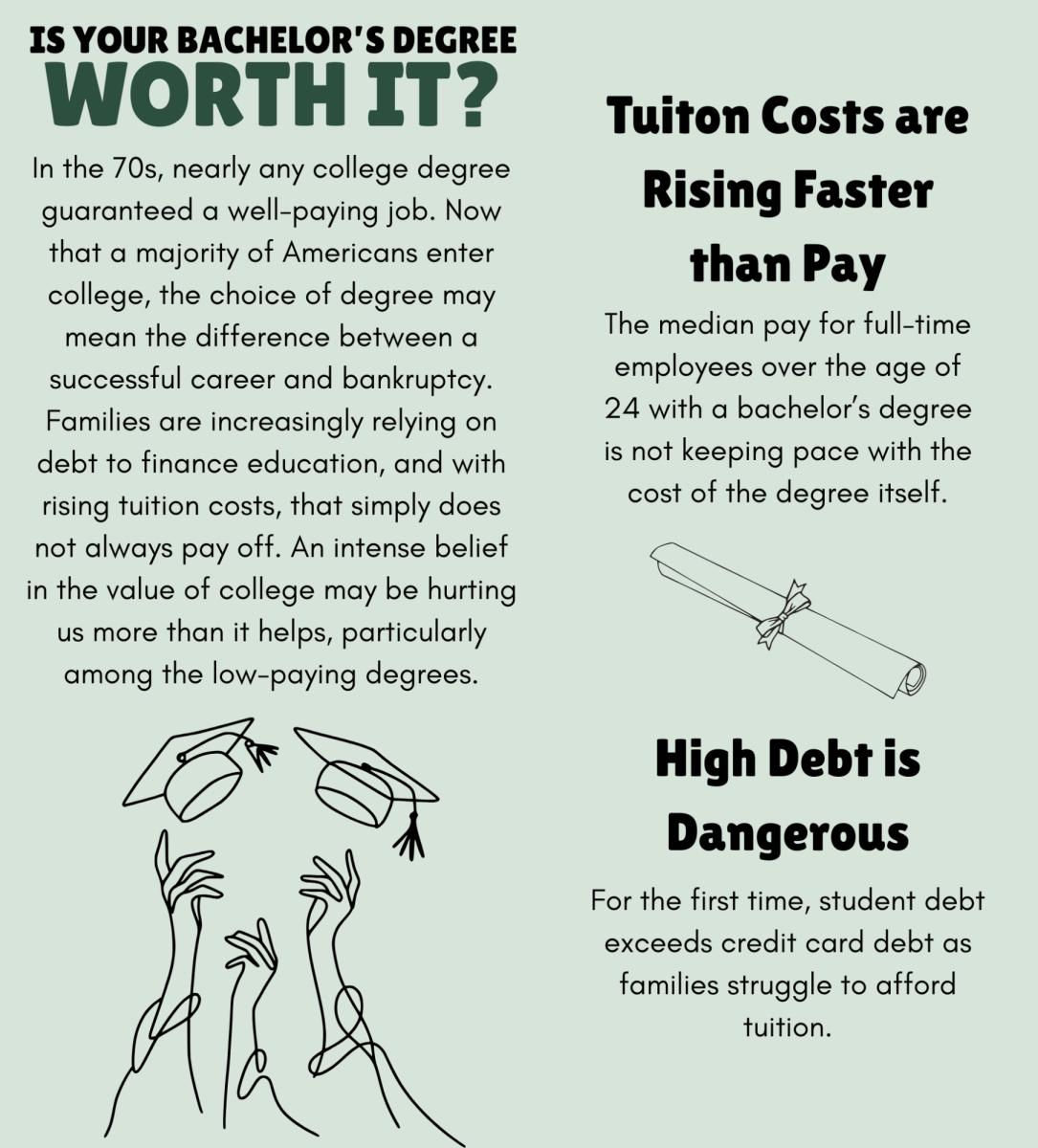As college students we’ve all heard or read about Louisiana’s cuts to higher education funding by now, but few of us probably know just how bad those budget cuts have been.
Since taking office, Governor Bobby Jindal has cut nearly $700 million out of the budget for higher education. (The deepest cuts of any state in the nation, which have us investing in higher education at our lowest rates since the 1950’s.)
As if cutting such a large sum out of the budget for higher education wasn’t bad enough, the governor’s most recent budget proposal was rumored, as late as this week, to cut anywhere from $350 to $400 million more from higher education.
Universities and colleges in the state cannot be expected to remain viable and vibrant while taking such large budget cuts in rapid succession.
In his budget proposal, the governor did outline plans to lessen the predicted blow to our state’s universities. The bulk of Jindal’s plan is centered on one very large part of his proposal, partially rolling back 12 refundable tax credits to direct an extra $376 million toward saving state universities next year.
Even with rolling back the 12 tax credits, however, universities would still be looking at a $211 million budget cut.
This brings up a second part of the governor’s proposal: a new charge on college students that he is calling an “excellence fee.”
For now it remains unclear how much this proposed new student fee would be but in one interview, Chief Higher Education Commissioner Joseph Rallo said the proposed fee would be $2,000 annually.
Despite the $1.6 billion shortfall that Louisiana is facing, cutting from the higher education budget again simply cannot be an option.
According to a report from the Center on Budget and Policy Priorities, Louisiana’s per-student funding for higher education is down more than 40% since the start of the recession in 2007.
The truth of the matter is this, colleges and universities in Louisiana simply cannot afford anymore budget cuts. Likewise, many students cannot afford another round of tuition or fee increases.
For far too long now the governor and members of the legislature have been much too content to solve the fiscal nightmares they create by cutting funding to higher education.
They balance out the cuts by raising tuition, placing a disproportionate amount of the cost of education on the shoulders of students.
There are ways for the legislature to solve Louisiana’s fiscal woes without cutting from funds to higher education and raising tuition and fees on university students.
To be fair, the governor’s plan to roll back 12 refundable tax credits isn’t at all a bad start.
I, however, would propose going a bit further.
One “tax credit” (read subsidy) that should be on the chopping block is the state’s film tax credit.
Currently tax payers, through film subsidies, cover nearly 30 percent of films’ local costs. According to one report from The Advocate, Louisiana spent more than $250 million on film subsidies in 2013.
To put this subsidy into perspective as it relates to higher education, it’s worth nothing that Louisiana tax payers’ invested more in the 2011 flop Green Lantern alone than they did in the University of New Orleans that same year.
We can afford to balance our budget without cutting funds for colleges and universities if we cut ill-conceived subsidies like this one that offer little in return to our state.
There are other instances when our spending of precious tax payers’ dollars went toward things much less important than higher education.
Specifically 19,000 other instances come to mind.
In an op-ed earlier this month, State Treasurer John Kennedy blasted the alarmingly high number of consultants on the state government payroll.
Last year, State Representative Jerome “Dee” Richards introduced legislation HB 142, which would have cut the state’s consulting contracts by 10 percent and funneled the $528 million saved back into higher education.
This bill passed both chambers of the state legislature unanimously before being vetoed by governor Jindal.
Thankfully for both universities and university students, Representative Richards pre-filed an identical piece of legislation named HB 30 this year.
By passing this bill we could not only avoid making further cuts to the already depleted funds for higher education, we can start investing into higher education once again.
Religion can be spoken about freely, yet we tread softly when publically mentioning it.
But, the hardest idea to grasp is that having the right to spread religious awareness is certainly not the same as pushing beliefs on others.
While people reserve the right to practice religious freedom and to speak without restraint about any faith they choose, forcing others to listen isn’t freedom of speech; it’s harassment.
There are over 127 major religions and seven billion people on earth with seven billion different views of God. Some love Him, some fear Him, some question His existence and some are still searching for Him.
Some will decide that God plays no role in the trials and tribulations of life, while others will find faith the moment they see their newborn child take the first breath of being.
Whether we discover where we spiritually belong in a pew on Sunday morning or on a lonely drive with no destination, the journey to finding or forgetting God is what determines our views. We can’t be told what and who to believe in, or to even believe in anything at all.
What we learn, who we meet and the challenges we face are what we remember when we stand before Him, not the church members that knock on our front doors, or the people that stand in the quad condemning us all to hell.
And if the church goer at your front door changes your perspective, let them. Be baptized in one church, change your mind, and be baptized in another. Let what you learned in biology class make you question evolution and the powers above.
Learning from life experiences and questioning God’s ways isn’t sin; it’s human. It’s human to change emotionally, mentally, and spiritually when physical surroundings change. It’s human to simply be curious and indecisive.
Faith only exists because there are people that believe strongly enough in it to make it a reality and a way of life. Without doubters and differences, the strength of religion would never have anything to be measured against.
Because of that, religion without true belief is weak.
Never practice out of habit, don’t follow just because your parents or friends do, and don’t ever think one religion is superior to another. In a time that seems to have the explanation for everything in a test tube or on a database, people believing in any God at all is a miracle in itself.





